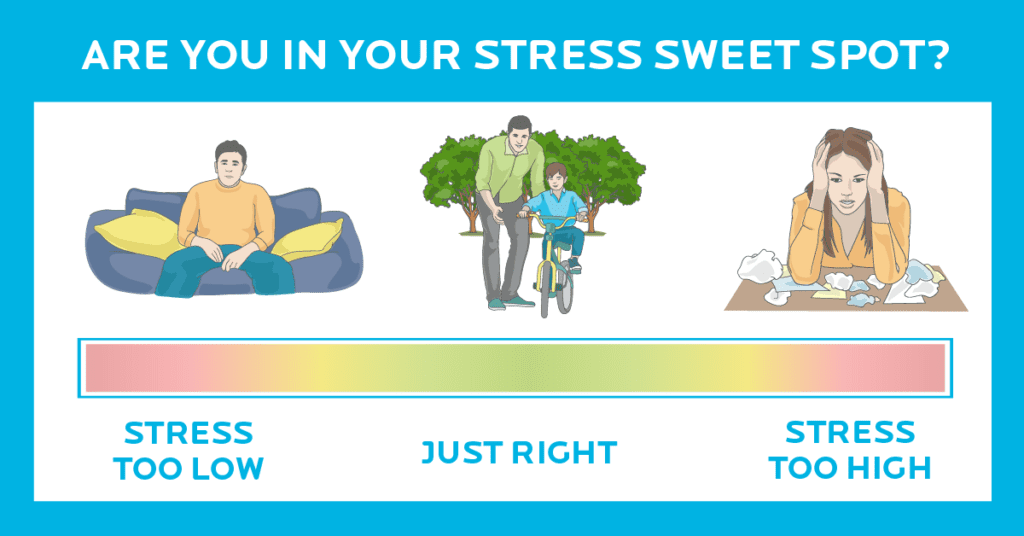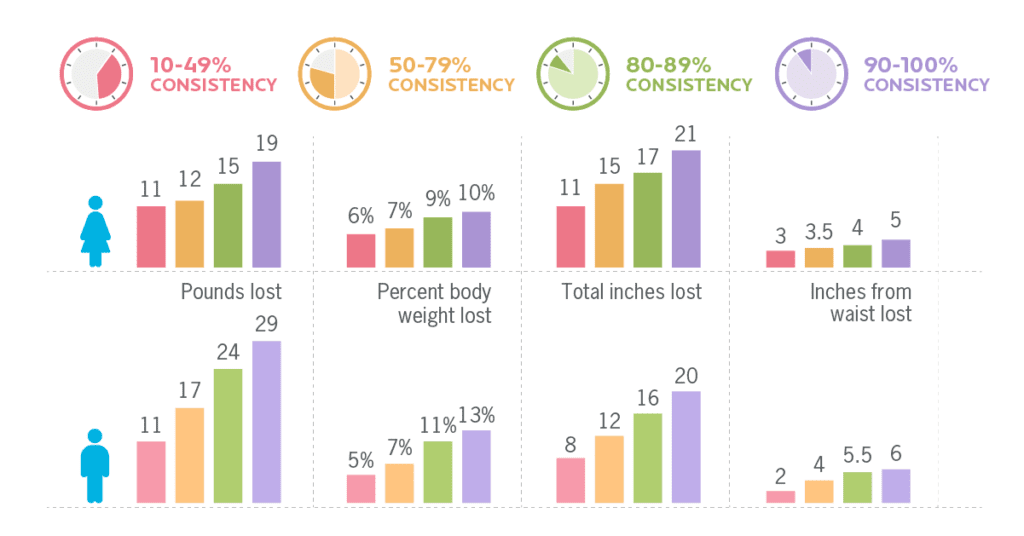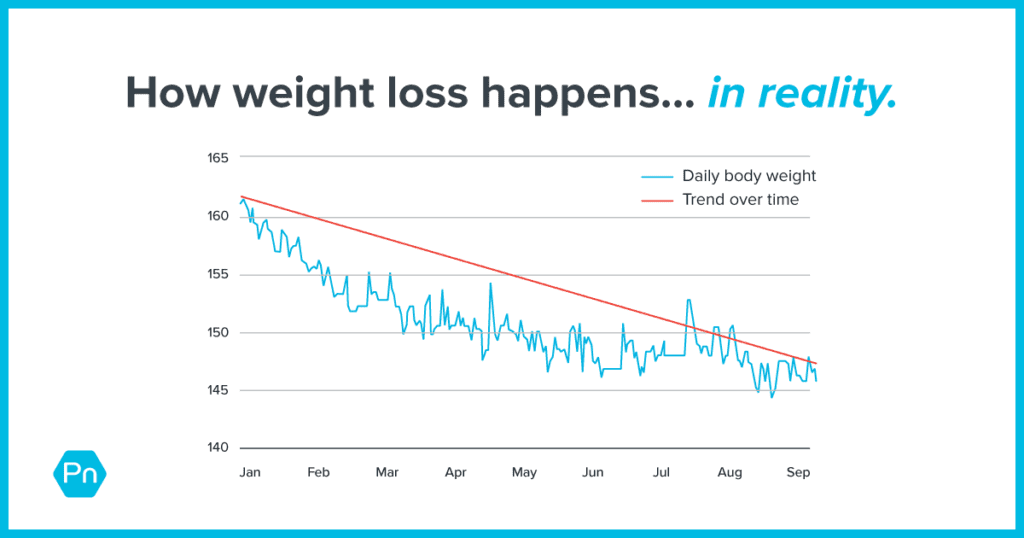In a Nutshell
- Chronic stress disrupts your body’s stress response system: It’s not “adrenal fatigue”—the real issue is HPA axis dysfunction, which throws off the balance of stress hormones like cortisol and adrenaline.
- Stress shows up in your body: Long-term stress can cause physical symptoms such as digestive issues, trouble sleeping, muscle aches, and frequent illness.
- Your mood and mind suffer, too: Poorly managed stress often leads to anxiety, depression, irritability, and difficulty concentrating.
- Healthy habits are your best defense: Regular exercise, balanced nutrition, quality sleep, and mindfulness practices can help restore your body’s stress response and boost overall well-being.
- Some of your stress triggers are incognito: Silent stressors disrupt wellbeing and block progress. Uncover how stressed you (and your clients) really are with our free science-backed Stress Assessment.
Bonus: Download our free infographic for tips on managing “Stress Bod.
Most of us think we know what stress is and how it feels:
- A pounding heart when we’re awakened at 3 a.m. by the sound of breaking glass.
- The need to pee five times before we deliver a presentation.
- A temper bomb that explodes when our entire day goes sideways.
But another, more subtle kind of stress can lurk beneath the surface.
It’s what happens inside our bodies when we’re continually exposed to the din of construction noise, the uncertainty of a pandemic, the scars of childhood trauma, or the never-ending pressures of parenthood, work, and finances.
These hidden stressors can be so constant that we don’t register them. They’re a part of the backdrop, woven seamlessly into our “normal.”
Over time, however, as they accumulate, hidden stressors can wear us down— leaving us feeling foggy, listless, tired, bloated, and sore.
People used to call this walking dead sensation “adrenal fatigue.”
The adrenal-fatigue theory went like this: Chronic stress depletes the adrenal glands, reducing their ability to pump out the stress hormone cortisol. This adrenal-fatigued state left people drained.
And it all certainly sounded plausible.
Then two doctors from the Adrenal and Hypertension Unit of the Universidade Federal de São Paulo in Brazil decided to take a close look at the research. After carefully examining and poking hundreds of holes in 58 different studies,1 they concluded:
Adrenal fatigue is not a thing.
Their exact words: “Adrenal fatigue does not exist.”
The doctors’ most convincing evidence against the “adrenal fatigue” theory: In most people tested for the condition, cortisol levels were… normal. In other words, their adrenal glands were anything but depleted.
So… what’s going on?
It all has to do with something called HPA axis dysfunction.
In simple language, HPA axis dysfunction means the stress response doesn’t work as it should.
HPA stands for “hypothalamic-pituitary-adrenal.” And the word “axis” means those things are all connected, specifically:
- An area of the brain, called the hypothalamus, interprets stress, secreting a hormone called corticotropin secreting hormone (CRH).
- CRH tells the pituitary gland to release adrenocorticotropin hormone (ACTH).
- ACTH instructs the adrenal glands to make the stress hormones cortisol and adrenaline.
Once your adrenals have pumped out some cortisol, they tell your brain “we did our job,” and your brain flips off the stress response.
At least, that’s how it’s supposed to work.
But when we face too many stressors too close together for too long, this intricate system can malfunction.
Your adrenals either don’t tell your brain “we did our job,” or your brain doesn’t hear the message. The end result: Cortisol production stays on when it should be off.
Though more research is needed to completely unravel that mechanism, some functional medicine experts believe that this constant flood of cortisol makes the body resistant to its message.
(For a deeper dive on adrenal fatigue, read: The truth about adrenal fatigue.
Introducing: The “Stress Bod.”
Let’s face it: HPA axis dysfunction is a mouthful. That’s why we use the much simpler term “Stress Bod.” (Yes, we coined it.) It sounds like what it is.
When we have a Stress Bod, we might not feel rested, even after sleeping more than 8 hours. So we turn to caffeine, sugar, salt, and fat as energy-sustaining (and coping) substances.
And if we ignore our body’s messages to “take it easy” and instead try to power through an intense workout, we’ll likely find that we can’t pump out as many reps or lift as heavy or run as quickly as we used to.
We might even get injured or sick.
And if we’re the kind of data-driven people who track things like morning heart rate and temperature, we’ll notice that the first is creeping up, while the second is going down.
Now, for the good news.
This is important: If you’ve been beating yourself up for skipping workouts, gulping down boxes of toaster pastries, or mindlessly scrolling social media when you’re supposed to be, a-hem, working, we’ve got four words for you: Give yourself a break.
You’re not lazy.
You might be in a situation that happens to be incredibly common, especially this year, given the general state of uncertainty and unrest unfolding all around us. For example, in April 2020, the percentage of people living in the UK who were experiencing significant mental distress rose to 27 percent of people surveyed, up from 19 percent the year before.2
You’re not stuck. You can do something about this.
- Take the quiz below. It’ll help you determine your current stress load.
- Check out the infographic that follows. It’ll help you better understand your signs and symptoms, identify hidden stressors, and incorporate healing practices to nourish and restore your body.
What’s your stress load?
Use these questions to rank your overall stress as well as how effectively you’re coping with it.
They’re based on the Perceived Stress Scale (PSS)—the most widely used stress assessment.3
1. In the last month, how often have you been upset because of something that happened unexpectedly?
- Never – 0 points
- Almost never – 1 point
- Sometimes – 2 point
- Fairly often – 3 point
- Very often – 4 point
2. In the last month, how often have you felt that you were unable to control the important things in your life?
- Never – 0 points
- Almost never – 1 point
- Sometimes – 2 point
- Fairly often – 3 point
- Very often – 4 point
3. In the last month, how often have you felt nervous and stressed?
- Never – 0 points
- Almost never – 1 point
- Sometimes – 2 point
- Fairly often – 3 point
- Very often – 4 point
4. In the last month, how often have you found that you could not cope with all of the things that you had to do?
- Never – 0 points
- Almost never – 1 point
- Sometimes – 2 point
- Fairly often – 3 point
- Very often – 4 point
5. In the last month, how often have you been angered because of things that happened that were outside of your control?
- Never – 0 points
- Almost never – 1 point
- Sometimes – 2 point
- Fairly often – 3 point
- Very often – 4 point
6. In the last month, how often have you felt difficulties were piling up so high that you could not overcome them?
- Never – 0 points
- Almost never – 1 point
- Sometimes – 2 point
- Fairly often – 3 point
- Very often – 4 point
7. In the last month, how often have you felt confident about our ability to handle your personal problems?
- Never – 4 points
- Almost never – 3 point
- Sometimes – 2 point
- Fairly often – 1 point
- Very often – 0 point
8. In the last month, how often have you felt that things were going your way?
- Never – 4 points
- Almost never – 3 point
- Sometimes – 2 point
- Fairly often – 1 point
- Very often – 0 point
9. In the last month, how often have you been able to control irritations in your life?
- Never – 4 points
- Almost never – 3 point
- Sometimes – 2 point
- Fairly often – 1 point
- Very often – 0 point
10. In the last month, how often have you felt that you were on top of things?
- Never – 4 points
- Almost never – 3 point
- Sometimes – 2 point
- Fairly often – 1 point
- Very often – 0 point
Your score:
0-13: Your perception of stress is relatively low. That’s great!
14-26: Your perception of stress is moderate. You’re already doing a lot right, and you also have some room to improve.
27-40: Your perception of stress is pretty high. That’s okay—you can do something about this.
Now that you know where you stand, use this infographic to:
- Understand your Stress Bod symptoms
- Pinpoint the sneaky stressors that contribute to Stress Bod
- Learn a 6-step process for overcoming stress—so you can feel like your usual self again!
Go ahead and download it, so you can refer back to it as you change for the better.

References
Click here to view the information sources referenced in this article.
If you’re a coach, or you want to be…
Learning how to coach clients, patients, friends, or family members through healthy eating and lifestyle changes—in a way that helps them adopt simple but effective habits they can sustain—is both an art and a science.
If you’d like to learn more about both, consider the Precision Nutrition Level 1 Certification. The next group kicks off shortly.








Share